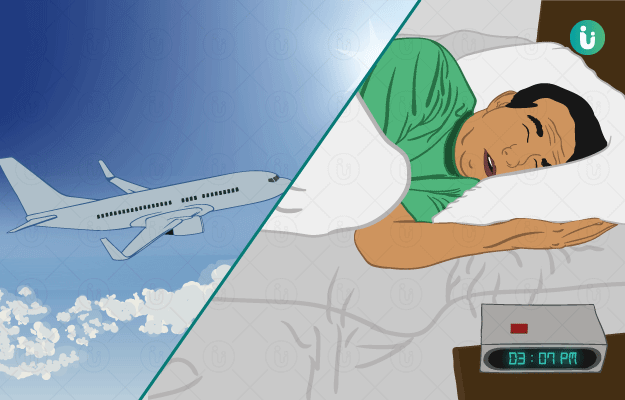The human body has its own internal clock that follows the circadian rhythms. It is this circadian rhythm of the body that tells us when to wake up and when to fall asleep.
When these wake-sleep patterns are disrupted due to travelling across time zones, we may feel disoriented and drowsy. This is known as jet lag disorder.
Here is the complete detail about sleep disorder treatment.
Jet lag is a temporary sleep problem that can easily get better as the body gets accustomed to the newer timings. It occurs because the body’s clock is in sync to your original time zone.
(Read More - Sleep Apnea treatment)

 Doctors for Jet lag
Doctors for Jet lag 


































